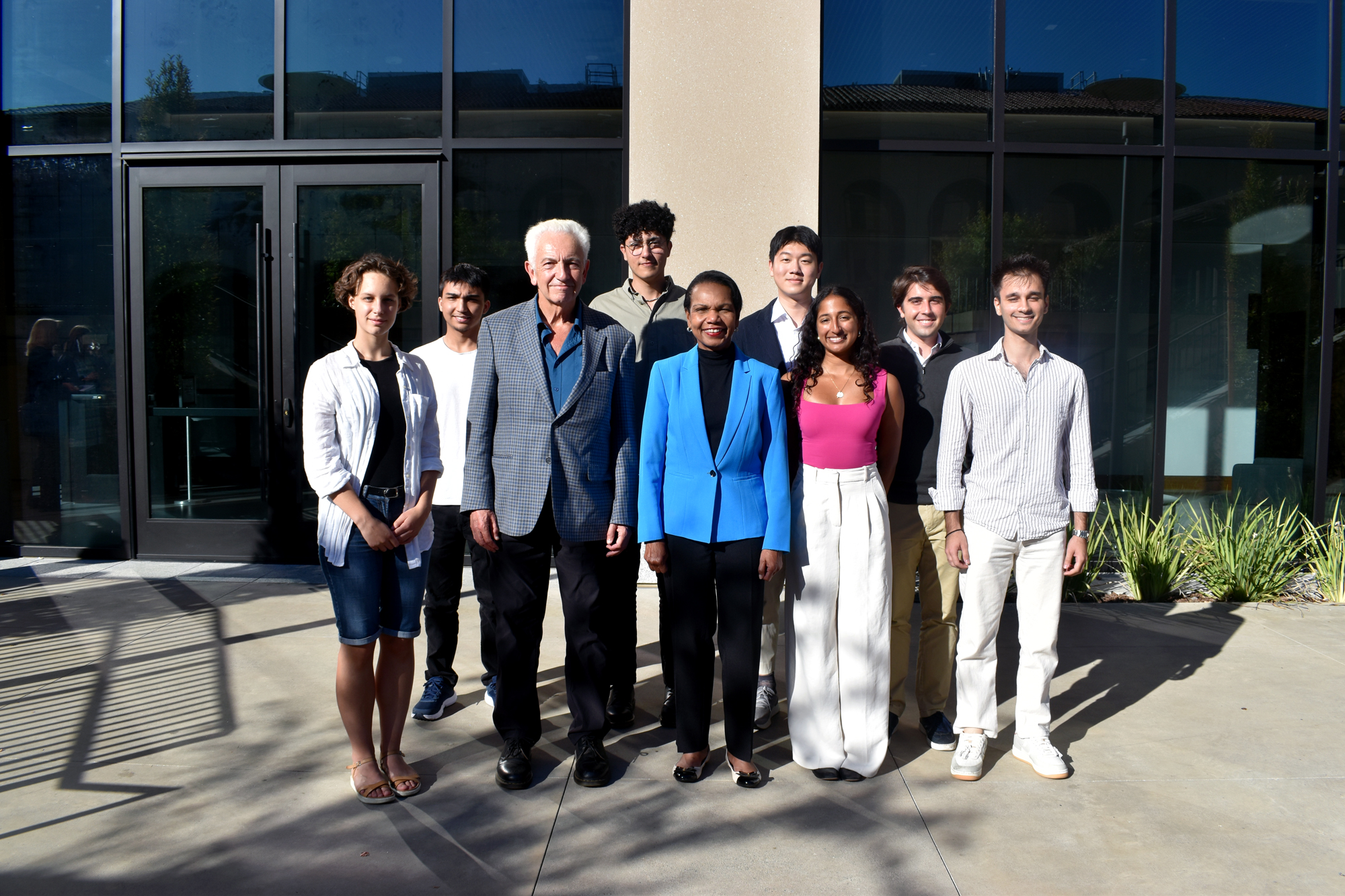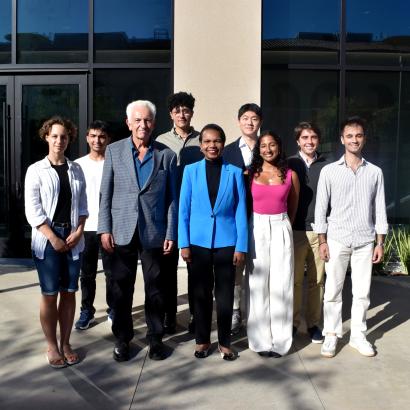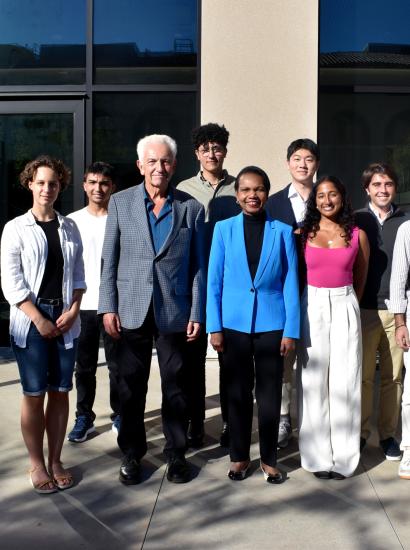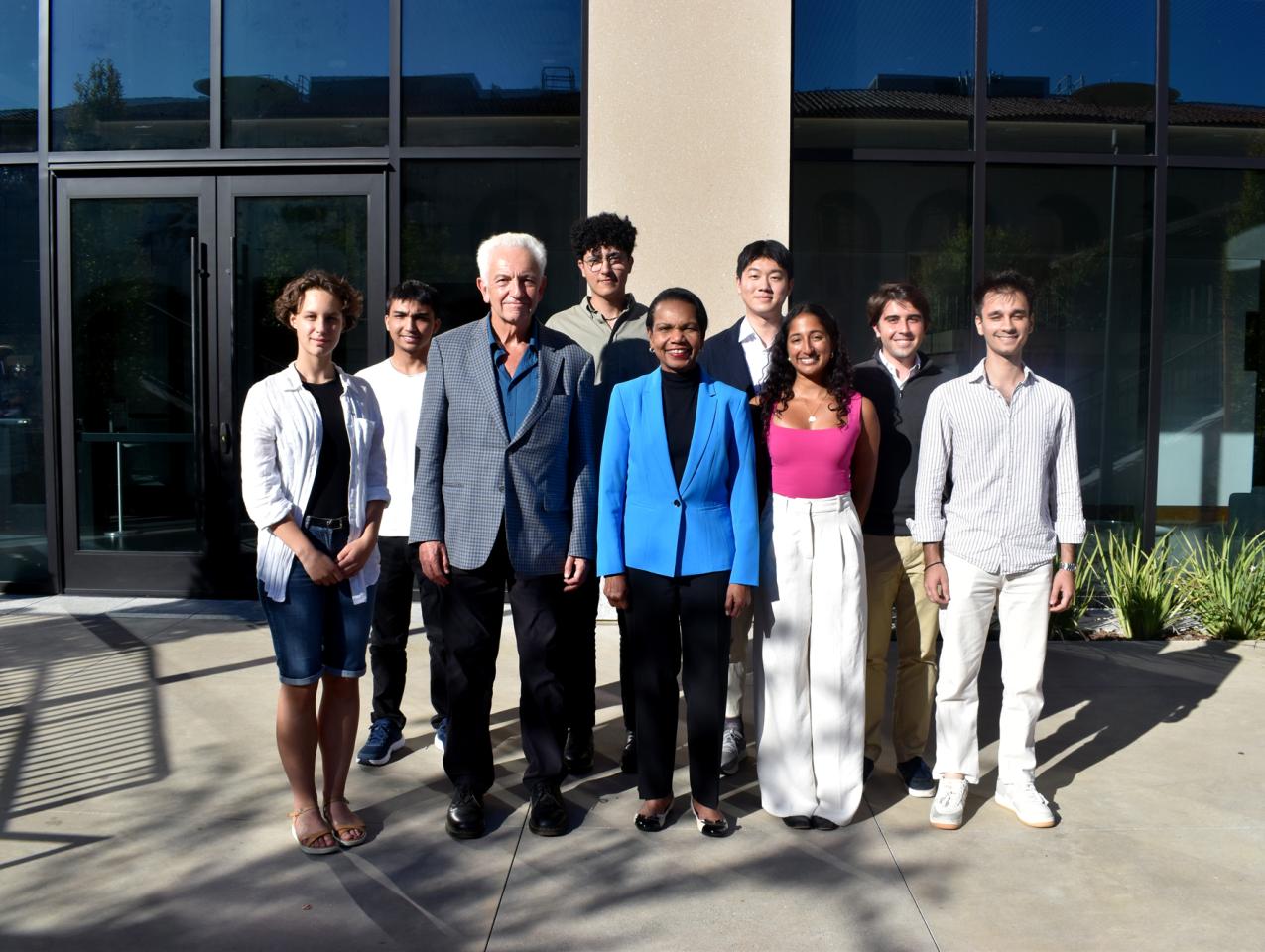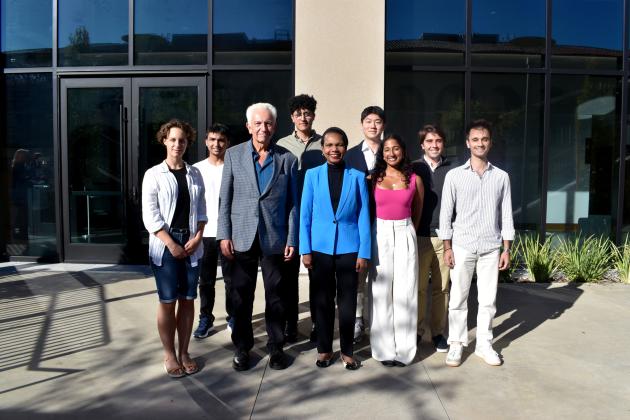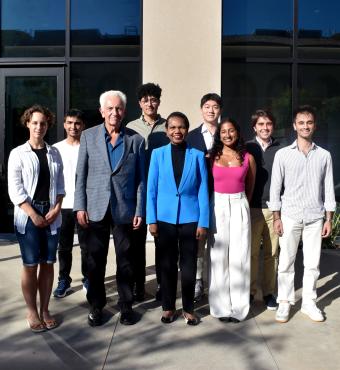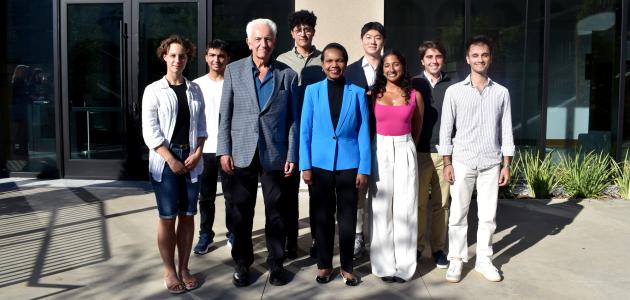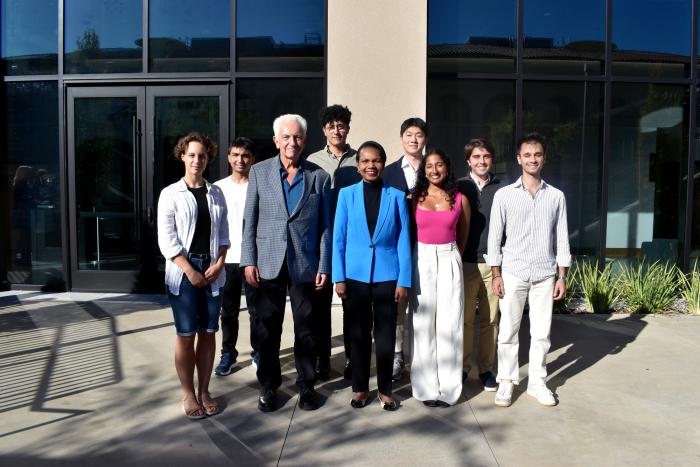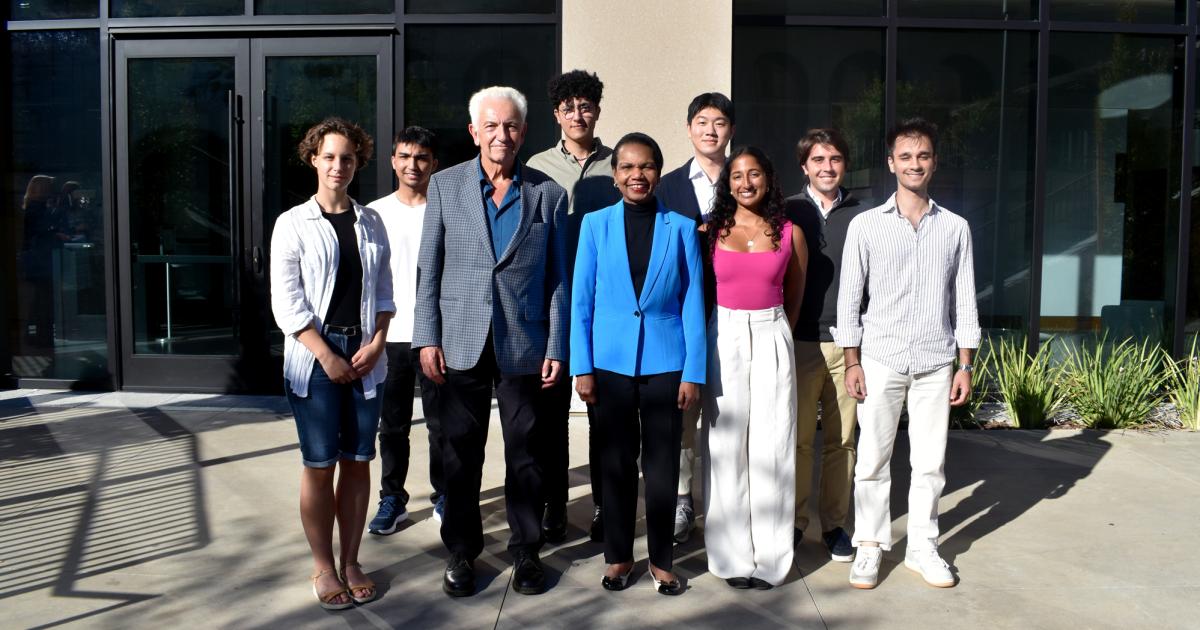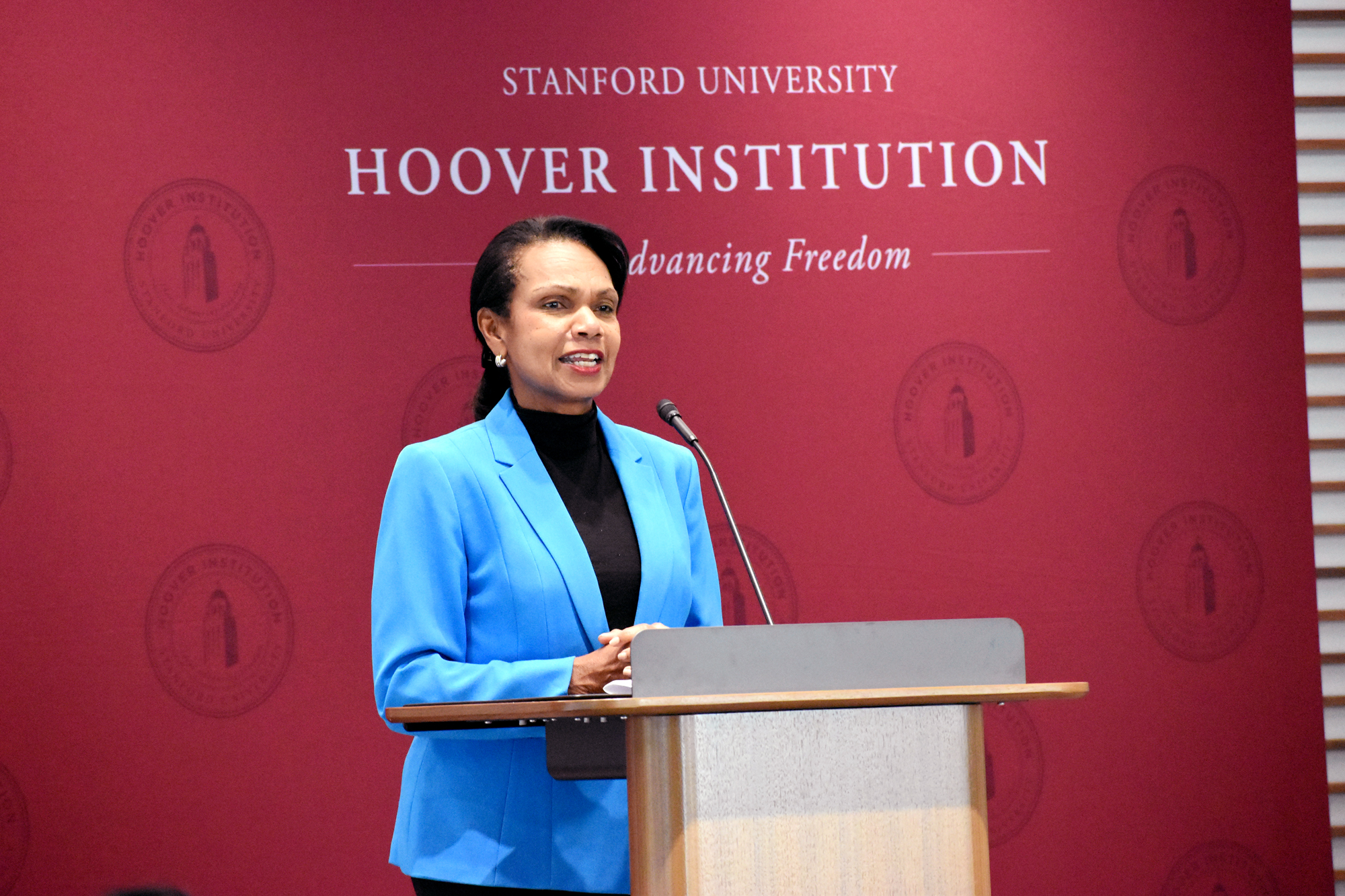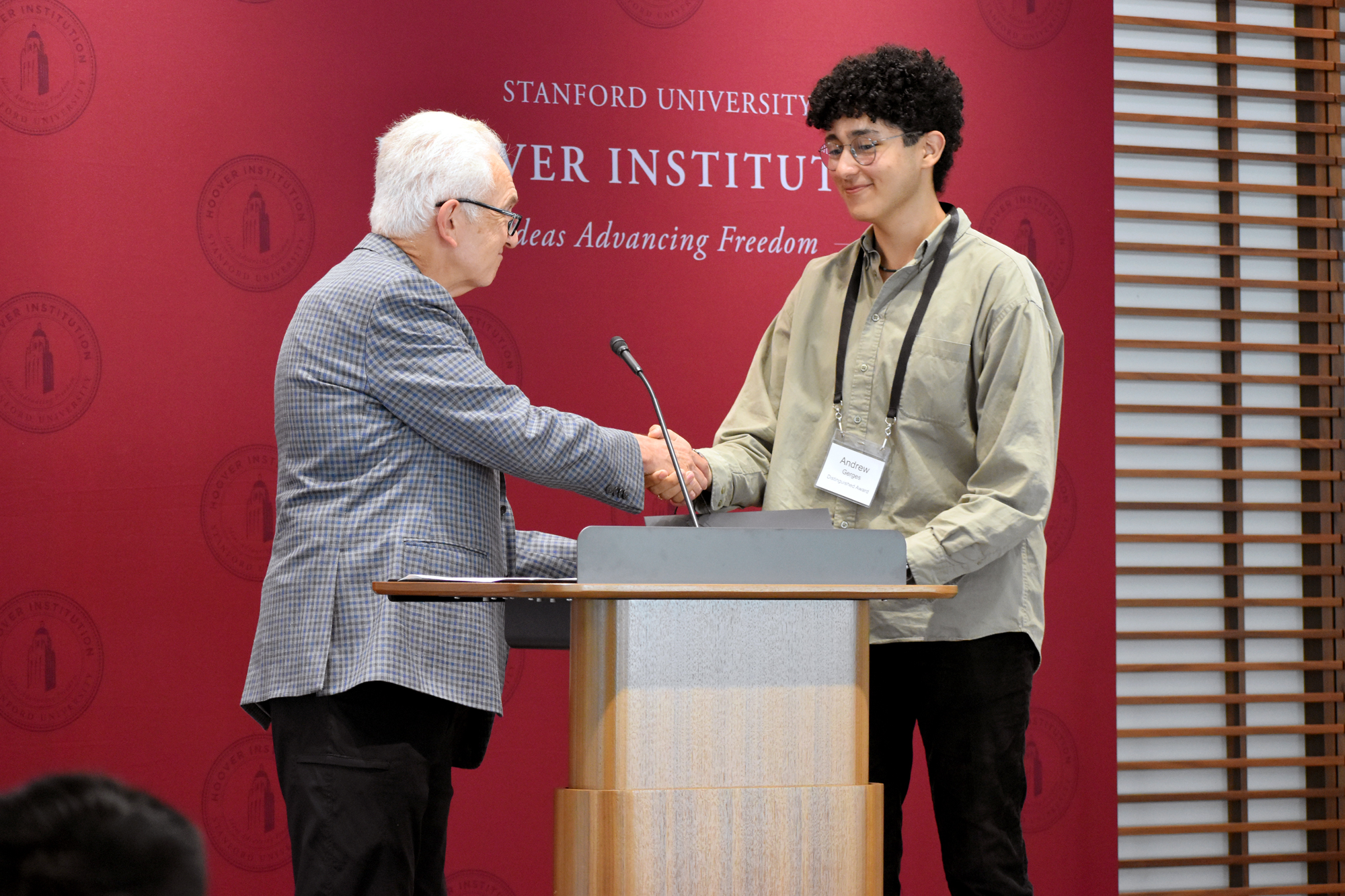Hoover Institution (Stanford, CA) — Hoover Institution Director Condoleezza Rice congratulated the winners of the annual Distinguished Undergraduate Essay competition at a ceremony on October 15, 2024.
Before an audience of the competition’s winners, as well as their friends and family, Rice explained that although the essays varied greatly in the topics they addressed, they all serve to support the Hoover Institution’s core mission.
“Every single one will advance your understanding and the understanding of those who read your essays about this extraordinarily important value of human freedom and human liberty,” Rice said.
The papers were judged by a panel composed of Hoover fellows Russell A. Berman, Norman Naimark, and Caroline Hoxby, as well as Ruth Starkman of Stanford’s Hume Center for Writing and Speaking.
“The pursuit of liberty requires freedom of speech and an articulate citizenry that can use that freedom. And that’s why this writing competition is important,” Berman, who created the essay competition, told the competition winners at the ceremony.
“Unless we can write well, we are going to lose our democracy,” he said.
The award winners are Stanford undergraduate students pursuing majors representing a broad set of academic interests.
The students distinguished themselves through the strength of their writing on topics concerning the values and institutions of liberty and on how public policies impact human freedom.
Distinguished Essay Award Winners:
Haibib Kerim (Major: electrical engineering, Class of 2027)
Essay Title: “How to Win the Second Cold War”
Haibib Kerim examines China’s attempt to expand its sphere of influence through modern economic neocolonialism, assessing the detrimental effects on the developing nations who are signatories of programs such as the Belt and Road Initiative. He also connects such developments to a broader “second cold war” with an ideological conflict between democracy and authoritarianism, drawing parallels to the ideological battle between capitalism and communism in the Cold War.
Divya Ganesan (Major: political science, minor in computer science, Class of 2025)
Essay Title: “Pressing Power: Bismarck’s Mobilization of the Masses”
Divya Ganesan’s essay examines Otto von Bismarck’s strategic use of the press in nineteenth-century Germany, contrasting his approach with those of other European nations that were integrating the liberty of public opinion into their political systems as part of democratic reforms.
Andrew Gerges (Major: economics, Class of 2025)
Essay Title: “Analyzing the Effects of Clean Water Access on Women’s Educational Attainment in Malawi”
Andrew Gerges quantifies the impact of water access projects on women’s schooling and its economic effects in Malawi. After reviewing the literature related to the topic, Gerges establishes the outsize effects of education on women’s economic well-being and national economic growth as well as the disproportionate effects of a lack of clean water access on women’s educational attainment.
Pedro Carvalho (Major: economics, Class of 2024)
Essay Title: “Beyond Numbers: Keynes, Friedman, and the Mathematization of Economics”
Pedro Carvalho’s essay examines the shared skepticism of John Maynard Keynes and Milton Friedman toward the increasing reliance on mathematical modeling in economics. It argues that both economists believed this trend overlooked the discipline’s complexity. These economists instead emphasized the importance of creativity, psychology, and logic alongside numerical analysis.
Three submissions were lauded as honorable mentions: “Cyprus’s Dependence on the Greek Motherland: Failed Perceptions of National Identity among the Youth,” by Marinos Eliades (mechanical engineering, Class of 2027); “Revolutionary Ukraine: Why Democratization Is Still ‘In Progress,’” by Anna Pikarska (history, Class of 2026); and “Alliance Institutions and the Great-Power Competition in the Asia-Pacific: Leadership Preference in South Korea’s US-China Alignment,” by JB Lim (international relations, and mathematical and computational science, Class of 2024).
Each of the four winners also received a cash prize.
To learn more about the competition and read about prior years’ winners, click here.







